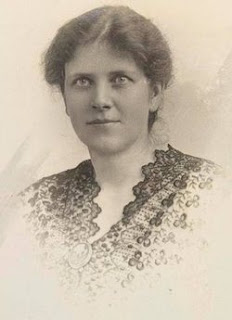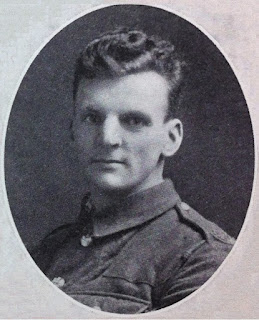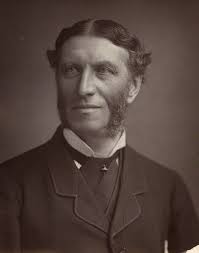 |
Portrait of Mary by
Glyn Philpot 1884 - 1937 |
Mary Borden was born on 15th May 1886. Her parents were milionaire William Borden 1850–1906 and his wife, Mary DeGarmo Whiting Borden, 1861–1933. Her siblings were: John Borden 1884–1961 and William Whiting Borden 1887–1913.
Mary’s brother, William Whiting Borden, became well known in conservative Christian circles for his evangelistic zeal and early death while preparing to become a missionary.
Mary was educated at Vassar College Liberal arts college in New York State, graduating with a BA degree in 1907. Mary met Scottish misionary George Douglas Turner (b. 1880), while on a tour of the Far East. They were married on 28th August 1908 in Lausanne, Switzerland. The couple had three daughters: Joyce (born 1909), Comfort (born 1910) and Mary (born 1914).
In 1913, Mary and her husband went to live in England, where Mary joined the Suffragette movement. She was arrested during a demonstration in Parliament Square for throwing a stone through the window of His Majesty's Treasury.
When war broke out in August 1914, Mary used her personal fortune and her contacts and equipped a field hospital to take to France. She served there in a nursing capacity until the end of the war looking after wounded French soldiers. While there, Mary met Edward Louis Spears, a British soldier who was a liaison officer between French and British forces. He was amazed to find a woman so close to the front lines. They fell in love and Mary separated from her husband, who took custody of their children. After Mary and George’s divorce, Mary and Edward were married at the British consulate in Paris in 1918. Their only child, Michael, was born in 1921.
 |
| Mary during WW1 |
Mary wrote poetry during her time in France and also wrote about her wartime experiences in a book entitled “The Forbidden Zone”, which was published in 1929, the same year that Hemingway published “A Farewell to Arms”, Graves published “Good-Bye to All That” and Remarque published “All Quiet on the Western Front”. The Forbidden Zone containes five long poems that describe what she saw and did working in the military hospital
Mary and Edward lived in Britain between the wars and in 1939, she was drawn back to France planning to set up a field hospital unit. With funds donated by Sir Robert Hadfield via his wife, Lady Hadfield, she set up the Hadfield-Spears Ambulance Unit, which was based in Lorraine until forced by the German Blitzkrieg to retreat across France, before its evacuation from Arcachon in June 1940. In Britain, the unit re-grouped and received further funding from the British War Relief Society in New York. In May 1941, the Hadfield-Spears Ambulance Unit was attached to the Free French in the Middle East, before accompanying their forces across North Africa, Italy and France.
 |
Mary Borden (center) with Sir Edward Spears (back row, left)
in the Lebanon, 1942, IWM |
"Journey Down a Blind Alley", published on her return to Paris in 1946, records the history of the unit and her disillusionment with the French failure to put up an effective resistance to the German invasion and occupation.
In later life, Mary returned frequently to America and helped her nephew-in-law - Adlai Ewing Stevenson II - in his campaign for the presidency. Mary died on 2nd December 1968.
"UNIDENTIFIED" by Mary Borden
Look well at this man. Look!
Come up out of your graves, philosophers,
And you who founded churches, and all you
Who for ten thousand years have talked of God.
Come out of your uncomfortable tombs, astronomers,
Who raked the heavens with your mighty eyes,
And died, unanswered questions on your lips,
For you have something interesting to learn
By looking at this man.
Stand all about, you many-legioned ghosts;
Fill up the desert with your shadowy forms,
And in the vast resounding waste of death,
Watch him while he dies;
He will not notice you.
Observe his ugliness.
See how he stands there planted in the mud like some old battered image of a faith forgotten by its God.
Note his naked neck and jutting jaw under the iron hat that's jammed upon his head;
See how he rounds his shoulders, bends his back inside his clumsy coat;
And how he leans ahead, gripping with grimy fists
The muzzle of his gun that digs it butt-end down into the mud between the solid columns of his legs.
Look close, come close, pale ghosts
Come back out of the dim unfinished past;
Crowd up across the edges of the earth,
Where the horizon, like a red hot wire, twists underneath tremendous smoking blows.
Come up, come up across the quaking ground that gapes in sudden holes beneath your feet;
Come fearlessly across the twisting field where bones of men stick through the tortured mud.
Ghosts have no need to fear.
Look close at this man. Look!
He waits for death;
He watches it approach;
His little bloodshot eyes can see it bearing down on every side;
He feels it coming underneath his feet, running, burrowing underneath the ground;
He hears it screaming in the frantic air.
Death that tears the shrieking sky in two,
That suddenly explodes out of the festering bowels of the earth
Dreadful and horrid death.
He takes the impact of it on his back, his chest, his belly and his arms;
Spreads his legs upon its lurching form;
Plants his feet upon its face and breathes deep into his pumping lungs the gassy breath of death.
He does not move.
In all the running landscape there's a solitary thing that's motionless:
The figure of this man.
The sky long since has fallen from its dome.
Terror let loose like a gigantic wind has torn it from the ceiling of the world,
And it is flapping down in frantic shreds.
The earth ages ago leaped screaming up out of the fastness of its ancient laws.
There is no centre now to hold it down. It rolls and writhes, a shifting tortured thing, a floating mass of matter set adrift.
And in between the fluttering tatters of the ruined sky,
And the convulsions of the maddened earth,
The man stands solid.
Something holds him there.
What holds him, timid ghosts?
What do you say, you shocked and shuddering ghosts,
Dragged from your sheltered vaults;
You who once died in quiet lamp-lit rooms;
Who were companioned to the end by friends;
And closed your eyes in languor on a world
That you had fashioned for your pleasant selves?
You scorned this man.
He was for you an ordinary man.
Some of you pitied him, prayed over his soul, worried him with stories of Heaven and Hell.
Promised him Heaven if he would be ashamed of being what he was,
And everlasting sorrow if he died as he had lived, an ordinary man.
You gave him Gods he could not know, and images of God; laws he could not keep, and punishment.
You were afraid of him.
Everything about him that was his very own
Made you afraid of him.
His love of women, food and drink, and fun,
His clumsy reach for life, his open grabbing fist,
His stupid open gaping heart and mouth.
He was a hungry man,
And you were afraid of him.
None of you trusted him;
No one of you was his friend.
Look at him now. Look well, look long.
Your hungry brute, your ordinary man;
Your fornicator, drunkard, anarchist;
Your ruthless rough seed-sowing male;
Your angry greedy egotist;
Your lost, bewildered, childish dunce;
Come close kind look into his haggard face.
It is too late to do him justice now, or even speak to him.
But look.
Look at the stillness of his face.
It's made of little fragile bones and flesh, tissued of quivering muscles fine as silk;
Exquisite nerves, soft membrane warm with blood,
That travels smoothly through the tender veins.
One blow, one minute more, and that man's face will be a mass of matter, horrid slime and little brittle splinters.
He knows.
He waits.
His face remains quite still.
And underneath the bullet-spattered helmet on his head
His steady eyes look out.
What is it that looks out?
What is deep mirrored in those bloodshot eyes?
Terror? No.
Despair? Perhaps.
What else?
Ah, poor ghosts-poor blind unseeing ghosts!
It is his self you see;
His self that does remember what he loved and what he wanted, and what he never had;
His self that can regret, that can reproach its own self now; his self that gave itself, let loose its hold of all but just itself.
Is that, then, nothing? Just his naked self, pinning down a shaking world,
A single rivet driven down to hold a universe together.
Go back, poor ghosts. Go back into your graves.
He has no use for you, this nameless man.
Scholars, philosophers, men of God, leave this man alone.
No lamp you lit will show his soul the way;
No name restore his lost identity.
The guns will chant his death march down the world;
The flare of cannon light his dying;
The mute and nameless men beneath his feet will welcome him beside them in the mud.
Take one last look and leave him standing there,
Unfriended, unrewarded, and unknown.
Works:
Slander (A Hungarian edition, 1930s)
The Mistress of Kingdoms; or Smoking Flax by Bridget MacLagan (Pseudonym) (1912)
Collision by Bridget MacLagan (Pseudonym) (play) (1913)
The Romantic Woman by Bridget MacLagan (Pseudonym) (1916)
The Tortoise (1921)
Jane - Our Stranger (1923)
Three Pilgrims and a Tinker (1924)
Four O'Clock and Other Stories (1926)
Flamingo (1927)
Four O'clock (1927)
The Forbidden Zone (1929) OCLC: 1852756
Jehovah's Day (1929)
A Woman with White Eyes (1930)
Sarah Gay (1931)
Action for Slander (1937)
The Woman I Love (1937)
Journey Down a Blind Alley (1946)
You, the Jury (1952)
Poems of Love and War (2015)
Sources:
https://www.findagrave.com/memorial/164497711/mary-borden
Poems from “The Forbidden Zone” http://www.ourstory.info/library/2-ww1/Borden2/fz.html
https://en.wikipedia.org/wiki/Mary_Borden
https://www.findmypast.co.uk/transcript?id=GBOR/MISCBMDS/MAR/000005585/1





























